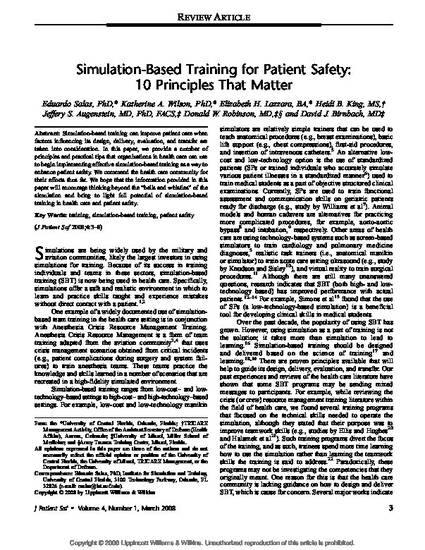
Article
Simulation-Based Training for Patient Safety: 10 Principles That Matter
Journal of Patient Safety
Submitting Campus
Daytona Beach
Department
Human Factors and Behavioral Neurobiology
Document Type
Article
Publication/Presentation Date
3-1-2008
Disciplines
Abstract/Description
Simulation-based training can improve patient care when factors influencing its design, delivery, evaluation, and transfer are taken into consideration. In this paper, we provide a number of principles and practical tips that organizations in health care can use to begin implementing effective simulation-based training as a way to enhance patient safety. We commend the health care community for their efforts thus far. We hope that the information provided in this paper will encourage thinking beyond the "bells and whistles" of the simulation and bring to light full potential of simulation-based training in health care and patient safety.
Publisher
Lippincott Williams & Wilkins
Grant or Award Name
Department of Defense (Award Number W81XWH-05-1-0372)
Citation Information
Eduardo Salas, Katherine A Wilson, Elizabeth Lazzara, Heidi B. King, et al.. "Simulation-Based Training for Patient Safety: 10 Principles That Matter" Journal of Patient Safety Vol. 4 Iss. 1 (2008) p. 3 - 8 Available at: http://works.bepress.com/elizabeth_lazzara/34/
